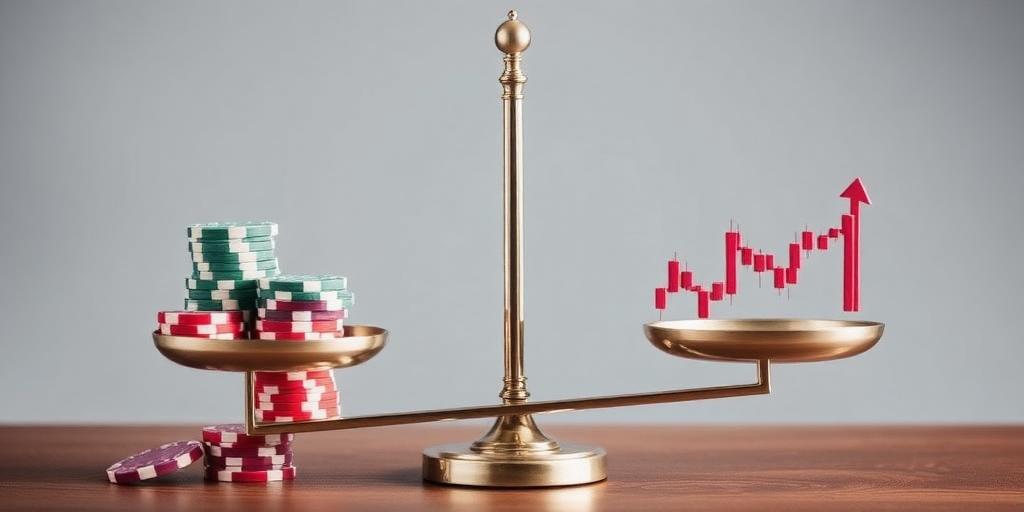The Fine Line Between Gambling and Disciplined Speculation in Trading
The world of trading and investment can often seem like a high-stakes casino, where fortunes are won and lost on a daily basis. However, beneath the surface of market volatility lies a crucial distinction between gambling and disciplined speculation. Understanding this difference is paramount for anyone looking to succeed in the financial markets.
What is Gambling in Trading?
Gambling, in the context of trading, involves making decisions based on chance, gut feelings, or incomplete information. It's characterized by the following:
- Lack of Research: Decisions are made without proper due diligence or analysis of market conditions.
- Emotional Trading: Fear and greed drive decisions, leading to impulsive actions.
- Ignoring Risk Management: Little to no consideration is given to potential losses, and stop-loss orders are often absent.
- Chasing Quick Profits: The primary goal is to get rich quickly, often through high-risk, high-reward trades.
- No Defined Strategy: Trading is done randomly, without a clear plan or set of rules.
What is Disciplined Speculation in Trading?
Disciplined speculation, on the other hand, is a calculated approach to trading that involves taking informed risks based on thorough analysis and a well-defined strategy. It includes:
- Thorough Research: Decisions are based on comprehensive analysis of market trends, financial statements, and economic indicators.
- Objective Decision-Making: Emotions are kept in check, and trades are executed based on a pre-defined plan.
- Robust Risk Management: Stop-loss orders are used to limit potential losses, and position sizes are carefully calculated.
- Long-Term Perspective: The focus is on consistent, sustainable profits rather than quick gains.
- Defined Strategy: Trading is guided by a clear set of rules, entry and exit criteria, and risk management protocols.
Key Differences Summarized
To further illustrate the distinction, here's a table summarizing the key differences:
| Feature | Gambling in Trading | Disciplined Speculation in Trading | | ------------------- | ------------------------------------- | ------------------------------------------ | | Decision Basis | Chance, gut feeling, incomplete data | Thorough analysis, data-driven insights | | Emotional Control | High emotional influence | Objective, unemotional | | Risk Management | Minimal to none | Robust, well-defined | | Time Horizon | Short-term, quick profits | Long-term, sustainable gains | | Strategy | Random, undefined | Clear, pre-defined rules and criteria |
How to Transition from Gambling to Disciplined Speculation
If you find yourself leaning towards the gambling side of trading, here are some steps you can take to become a more disciplined speculator:
- Educate Yourself: Learn about financial markets, trading strategies, and risk management techniques.
- Develop a Trading Plan: Create a detailed plan that outlines your goals, risk tolerance, and trading rules.
- Practice Risk Management: Always use stop-loss orders and manage your position sizes carefully.
- Keep Emotions in Check: Avoid making impulsive decisions based on fear or greed. Stick to your trading plan.
- Track Your Performance: Monitor your trades and analyze your results to identify areas for improvement.
Conclusion
While there's inherent risk in trading, the key lies in understanding and managing that risk through disciplined speculation. By conducting thorough research, developing a well-defined strategy, and practicing robust risk management, you can increase your chances of success in the financial markets and avoid the pitfalls of gambling. Remember, successful trading is a marathon, not a sprint. It requires patience, discipline, and a commitment to continuous learning.









